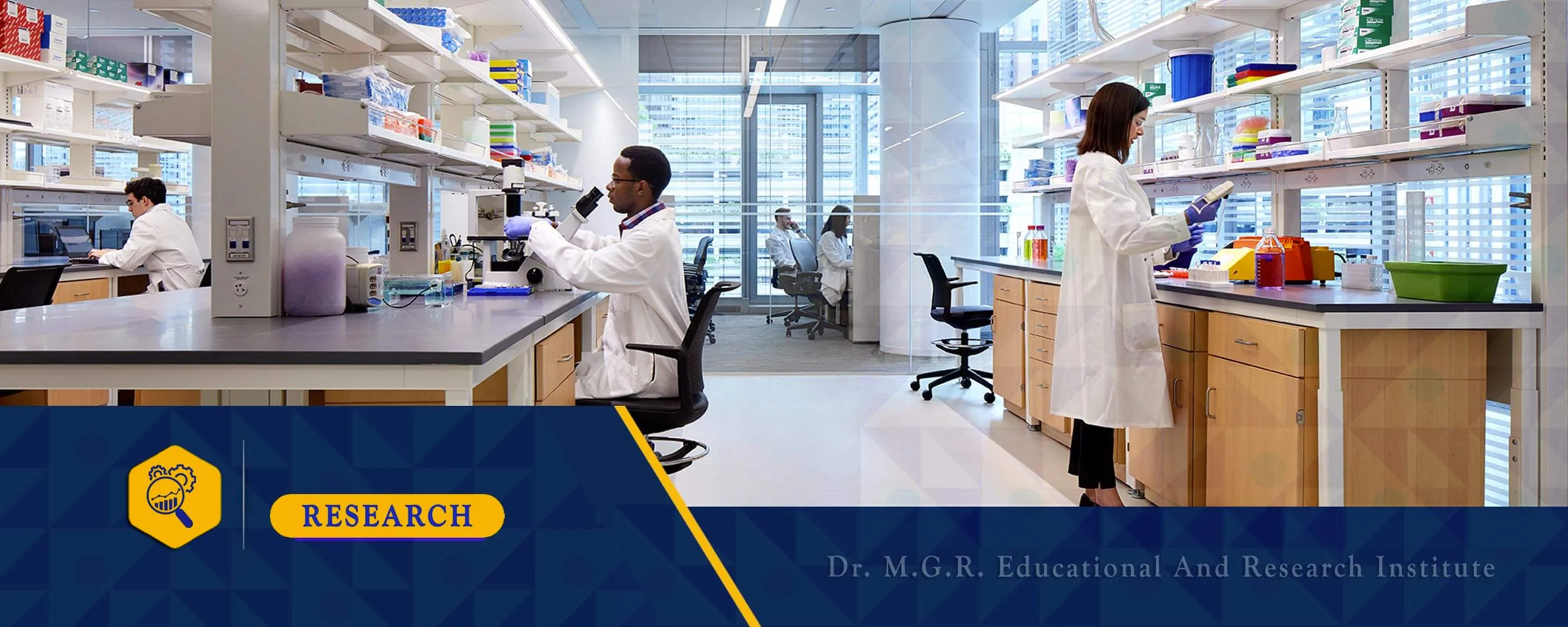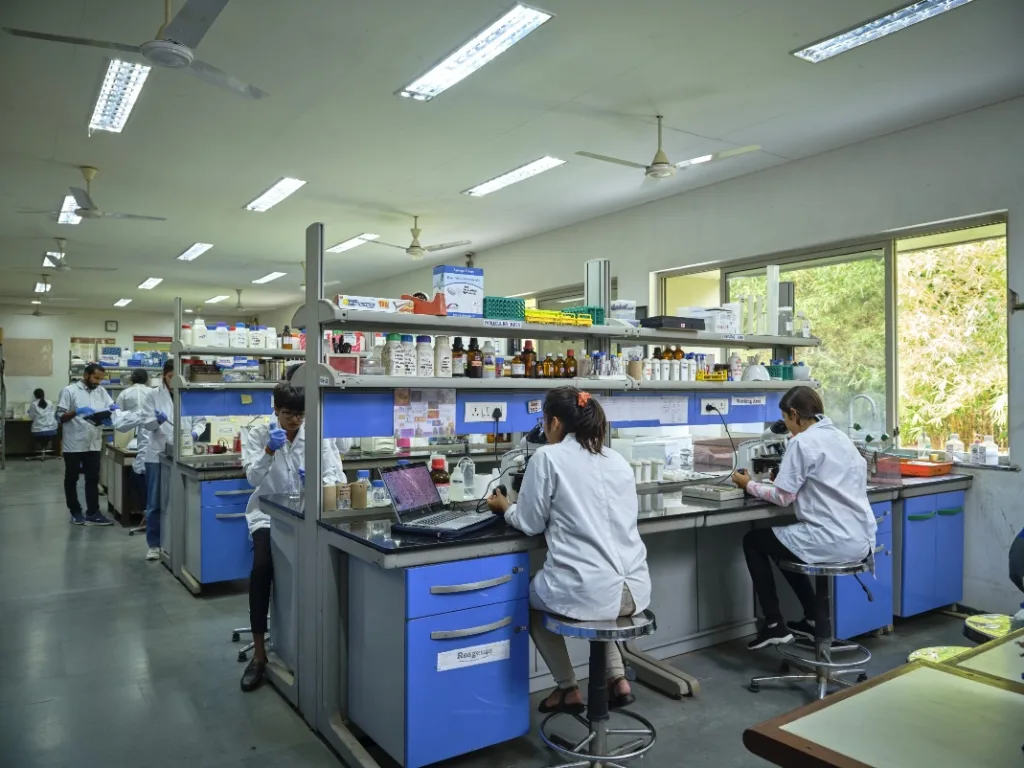
At Dr. M.G.R. Educational and Research Institute, research drives transformation. Our vibrant ecosystem of scholars, students, and industry collaborators works across disciplines to solve real-world problems — from smart technologies and healthcare innovations to sustainability and social justice.
We believe that the best research blends academic rigor with practical relevance. That’s why we emphasize hands-on learning, global partnerships, and solutions that make a difference in people’s lives.
Whether you’re a student eager to explore, a researcher seeking collaboration, or a partner ready to innovate — you’ll find a home for impactful research here.


“At Dr. M.G.R. Educational and Research Institute, research is the soul of our academic identity. As Rector, I am proud to lead an ecosystem where curiosity meets purpose, and innovation drives societal transformation. Our commitment is not only to knowledge creation but to meaningful application — ensuring that every research initiative leads to impact, excellence, and empowerment. We continue to nurture a research culture that is inclusive, dynamic, and aligned with the challenges of tomorrow.”
“At Dr. M.G.R. Educational and Research Institute, we believe that impactful research is born out of dedication, collaboration, and a shared vision for the future. As Joint Registrar – Research, I am committed to fostering a research environment that supports our faculty, scholars, and students in their pursuit of excellence. From enabling funded projects and consultancy to supporting publications, patents, and innovation, our focus is on building a vibrant, research-driven academic community. “

©2025 Dr MGR Educational and Research Institute, All Rights Reserved.